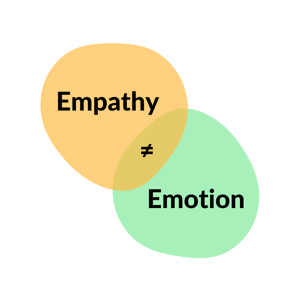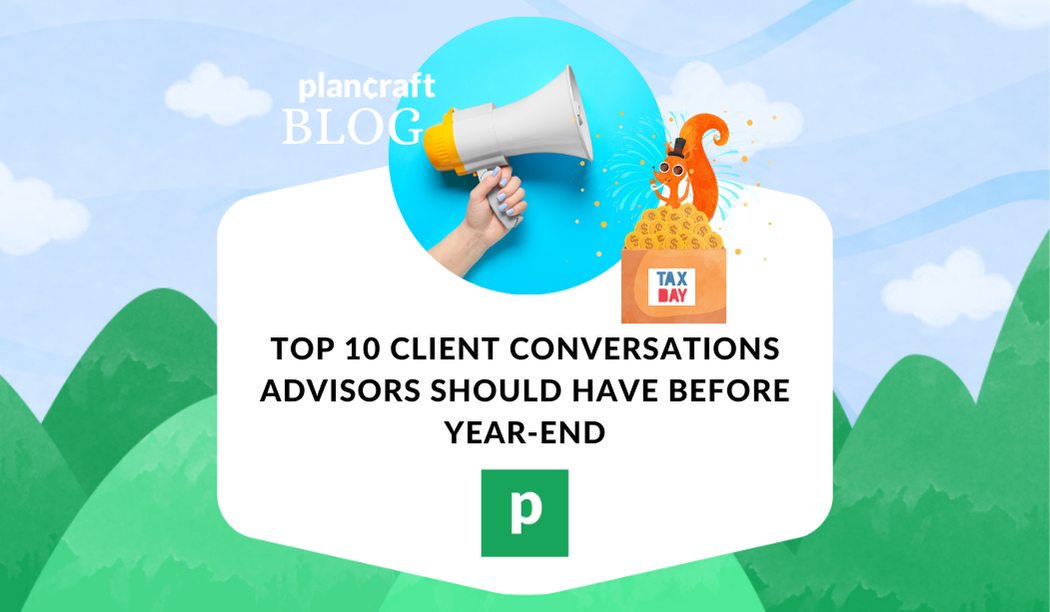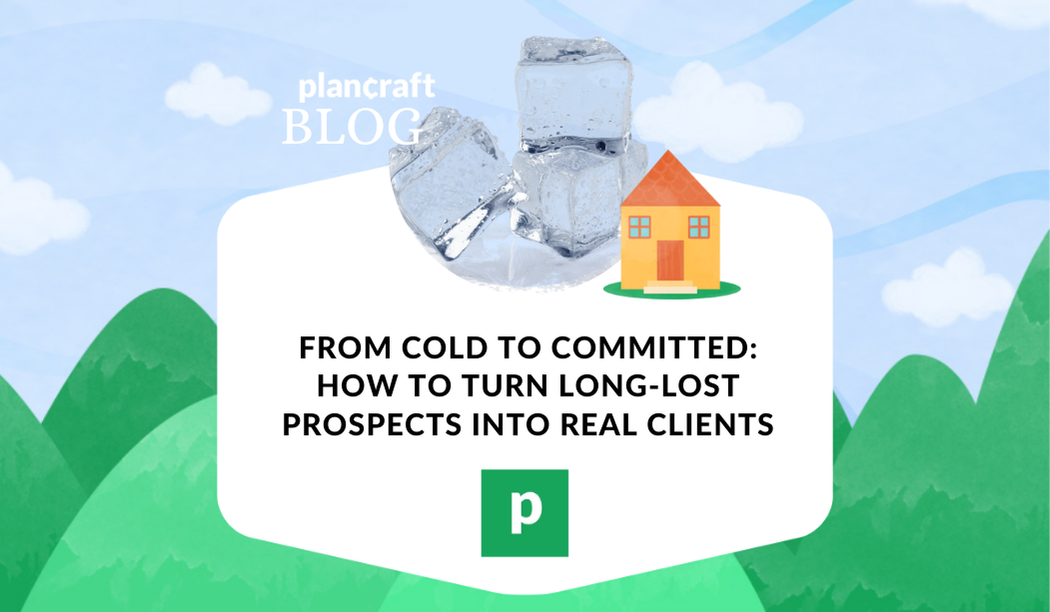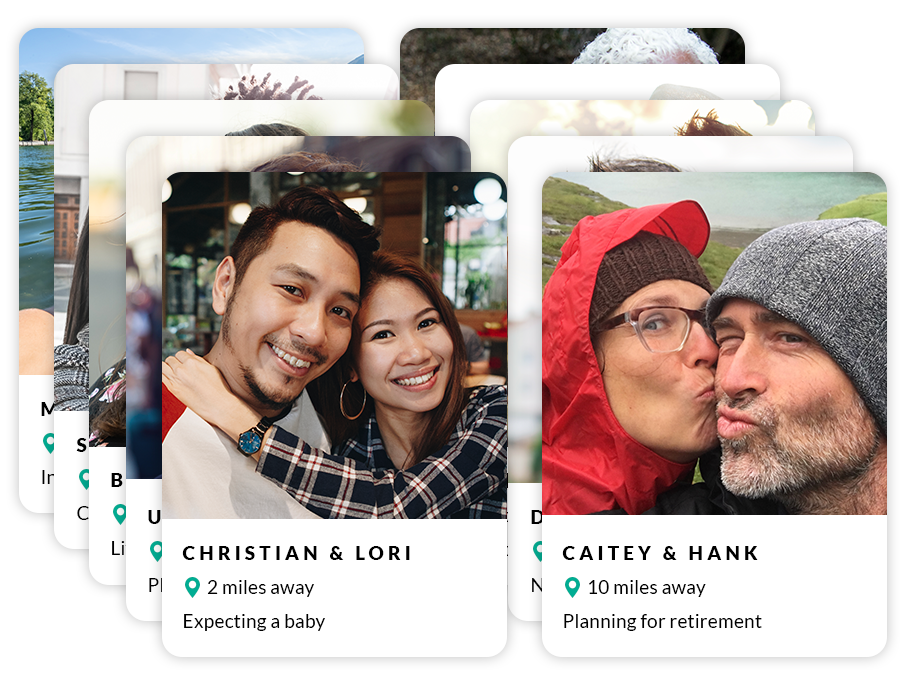Are you tired of making phone calls to prospects and having them hang up before you can convert them into customers? After all the marketing efforts you make to fill your sales pipeline, this outcome must be incredibly frustrating.
Mary Jane Copps, a.k.a. "The Phone Lady," is a consultant for life-licensed insurance agents and financial advisors who coaches Planswell partners on how to improve their lead conversion over the phone.
I attended a recent webinar she gave on how to use the power of empathy to convert more prospects into customers.
If this sounds like something that would be helpful to you or your sales team, get your party hat ready: I'll be summarizing her points on how to close calls more effectively in the following paragraphs.
Empathy and lead conversion
The Phone Lady begins her webinar with a quote from Bill Bullard Jr., a former Michigan senator:
"The highest form of knowledge is empathy, for it requires us to suspend our egos and live in another's world."
The key idea is this: when we engage our empathy, we learn important information about our target audience, their needs, and their pain points. Marketing process doesn't matter. Marketing channels don't matter. Empathy matters.
When we have empathy, we are able to truly understand our audience (prospects or clients), which allows us to deliver to their expectations. When we do that, we establish trust and loyalty (and, ultimately, close more clients).
The challenge of converting prospects
According to The Phone Lady, there are a few inherent difficulties associated with turning potential customers into actual ones.
Revealing the "why"
The first difficulty in converting even quality leads arises because doing research on prospects through social media platforms or administering surveys isn't necessarily going to reveal their "why."
Understanding prospects' "why" is an essential part of the lead conversion process, and, unfortunately, it's not the kind of thing folks tend to just post about on Facebook. A potential customer's "why" is everything at the heart of their interest in financial advice in the first place: work stress, challenges at home, recent successes or reasons for celebrating, etc.
Access to this kind of data is necessary to turn even good leads into customers. It's also the kind of information people tend to keep private.
And so, if we want to convert more prospects, make more sales, and — most importantly — build the kind of long lasting relationship that encourages referrals, we're going to need techniques to uncover our prospects' "why."
That's where empathy comes in.
Empathy ≠ emotion

The Phone Lady works with a lot of sales and marketing teams. Most of them, she says, come to the table with a serious misconception: empathy means having vulnerable, emotional conversations with our prospects.
Given the etymology of the word empathy, this misconception is understandable: the word actually comes from a German phrase meaning "in feeling."
Despite this, Copps suggests adjusting your perspective: to her, empathy is a logical process that will lead you to understand prospects' current lived experiences so you can best assist them (which will lead to more sales). As such, it's actually a skill you can develop through practice.
Practicing empathy
In order to develop your empathic skills (i.e. the ability to take time and understand new customers' feelings), The Phone Lady has a few suggestions:
First, if you're still struggling with the concept of being empathetic, one solution is to replace the word "feeling" with "situation." You don't need to understand the literal emotions your prospects are experiencing at the moment of your conversation; instead, empathy should lead you to focus on understanding potential clients’' actual lived experience.
Speculating is a good way to start, however if you truly want to succeed at conversion, you need to engage your potential customers with questions that will help you understand their "why."
A sales journey story
In order to illustrate the power of empathetic connection to convert prospects into customers, The Phone Lady shared the following story:
The context
At the beginning of the pandemic, one of Copps' larger corporate clients went quiet. She wasn't surprised by this; basically all businesses were scrambling at the time, and she knew they would communicate with her when they were ready.
The West Coast team eventually did contact her in January 2021. The tone of the conversation, however, was quite different from those they'd had before. She noticed a deeper level of hesitation, an uncertainty about what they wanted to do with their business.
THIS was strange, she thought, as the conversations she'd had before had always been quick, energetic, and decisive.
Introspection
In order to ensure she understood the situation correctly, she took a step back and asked herself a few questions:
- What does a typical day for this customer look like?
- What's expected of them?
- What's expected of their team?
- How do these expectations impact their time and overall stress levels?
What she learned
Merely from doing this quick (but thoughtful) internal reflection, Copps was able to generate ideas that would help her provide better service to this customer:
- Everyone at this company had to learn new technologies quickly in order to operate successfully during the pandemic.
- They were still adjusting to a hybrid workforce.
- The company was struggling to meet the demands of their own customers.
- Everyone was exhausted and very, very tired of online training and meetings (which is most of what The Phone Lady offers in terms of services).
After reflecting, Copps understood the specific criteria governing the pain points her customer was experiencing. These details allowed her to deliver her loyal customers relevant content so they did not lose interest in her services (and she didn't lose sales).
Implementation
First, she made the effort to cut her training sessions from an hour to half an hour to address everyone's internet training fatigue. In doing so, she also streamlined each training to a single topic and only included relevant content with specific action steps her customers could employ to start using the skills she taught immediately.
These "micro training sessions," as she branded them, were exactly the right tools for this customer. They were an enormous hit with the sales team at this company and she's been implementing them elsewhere in the industry ever since.
The point
At the end of the day, Copps allowed her empathy (rather than her desire to sell) to lead her to discover the deeper story of what was going on with her customers so she could serve them better. She didn't need to have a deep, emotional conversation with anyone, but instead thought logically about what they were likely experiencing in that moment and used the information gained to create solutions that would achieve the desired results.
A different approach
Sometimes all the careful introspection about what your target audience is experiencing and what services would best support them won't uncover the truth of their "why."
If you have good prospects but you are struggling to understand their "whys," here are some other strategies you can try to ensure you are able to understand their situations, connect with them authentically, and convert them into customers.
Use the news
If you already know the type of business your prospective customer is in and where they're located, you can gain a lot of valuable information by scanning the news.
As you do this research, track situations within their field or in their community that might be impacting their ability to do business, market their service, or even convert their own customers.
Poll your network
Your professional network is a great resource as well. Whether you take to social media platforms or simply call people you know, you likely have contacts who share similarities with your paying customers.
Checking in with your network is a great way to identify the pain points your prospects and customers might be experiencing that could be creating blocks that prevent them from believing it's the right time to engage with you professionally. Once you have this data, you'll be able to create the right path forward to conversion.
Ask open-ended questions
If you're finding prospects aren't opening up to you in a way that's allowing you to identify their "why," generate some open ended questions you can ask. Open ended questions are excellent tools for two reasons:
First, they help you track valuable data which helps you convert prospects. More importantly, they also message that you care about a person on a human level, as opposed to only being interested in their business.
Here are some excellent open-ended questions you can ask that will lead to you being able to convert prospects into customers:
- What current events are most impacting you?
- What are the biggest challenges for your family?
- Tell me more about how you are impacted by [the current market].
- Tell me more about the work you do.
- What’s involved in [supporting your children through their years at university]?
- What’s the impact of [you and your siblings caring for your parents right now]?
Again, asking questions like these will show you care about them as a person, not merely as a customer, which will lead to conversion.
Empathy: the champion of sales
Ironically enough, demonstrating to a prospect you are genuinely interested and invested in their wellbeing as a human as opposed to caring only about their conversion from prospect to customer is the best way to actually lead them to conversion.
To do this, you need to stop thinking about yourself (your needs, your desired outcomes, your business, their money) and instead give full attention to the needs of the person you're calling and how they are living and experiencing life at this moment.
Only when you are able to do this will you be able to deeply understand the "why" behind their actions and reactions, deliver to them what they need, and convert prospects into sales.
Action plan
Here's an actionable plan you can follow to boost your conversion rate through engaging empathetically with your prospects:
- Set aside your sense that empathy is synonymous with emotion and having touchy-feely conversations you aren't comfortable having during business hours.
- Instead, see yourself as a detective or reporter, and cultivate a genuine interest in their lives outside their utility to you and your business.
- Recognize empathy as a logical process that allows you to step back from facts and figures and focus instead on the trust and relationships you need to build.
- Spend time reflecting on what this specific person is experiencing right now and how these experiences might be impacting their ability to hear, trust, and work with you.
- Use news items and easily accessible online posts to learn more about their possible circumstances.
- Speak with friends and colleagues who share similarities (either in profession or circumstances) with a potential client and gain what insight you can from these conversations.
- Ask lots of open-ended questions and follow up with more in order to message you genuinely care for this person outside of your professional interests.
One more story
In order to further demonstrate the power of empathy in terms of sales conversion and relationship-building, The Phone Lady ends her webinar with one final anecdote:
Recently, Copps went out to coffee with one of her colleagues. This is a person who had attended her webinars and understood the importance of allowing empathy to lead a conversation, especially when it comes to asking authentically curious, open-ended questions. He did this consistently throughout their meeting, making sure to follow up on her answers with genuine curiosity.
The experience had a serious impact on her, and she was the one who taught him how to ask these kinds of questions.
 "I found myself telling him things I hadn't told anybody else in a long time," she reflected. "When I was walking back to my car, I was like 'wow, that was the best conversation I'd had in a long time.'"
"I found myself telling him things I hadn't told anybody else in a long time," she reflected. "When I was walking back to my car, I was like 'wow, that was the best conversation I'd had in a long time.'"
She felt honored and respected by her colleague's curiosity (demonstrated through the open-ended questions he asked her). If you can ensure a prospect feels honored and respected, you will create and build a relationship that will ultimately end in you earning their business.






.png)


